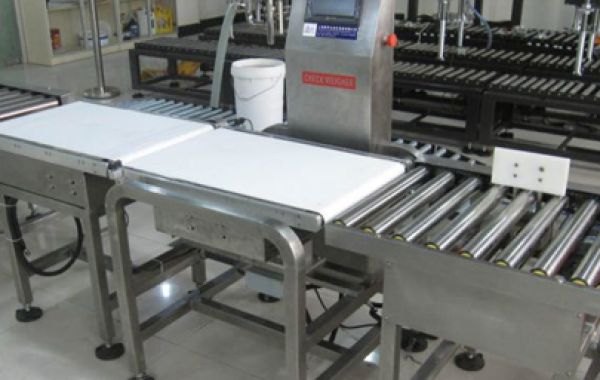- Preventing Waste:
Overweight Products: Checkweighers identify products that are heavier than the specified weight, preventing unnecessary material usage and reducing costs.
Underweight Products: By detecting underweight products, checkweighers ensure that customers receive the quantity they pay for, maintaining customer satisfaction and avoiding legal issues.
- Improving Efficiency:
Real-time Monitoring: Checkweighers provide real-time data on product weight, allowing operators to quickly identify and address any issues before they escalate.
Process Optimization: By analyzing checkweigher data, manufacturers can identify areas where the production process can be improved, leading to increased efficiency and reduced downtime.
- Ensuring Quality Control:
Consistent Product Weight: Checkweighers help maintain consistent product weight, ensuring that customers receive products that meet their expectations.
Preventing Defects: By detecting products that are outside of the specified weight range, checkweighers can help prevent defects that could lead to product recalls or customer dissatisfaction.
- Compliance with Regulations:
Food Safety: In the food industry, checkweighers are essential for ensuring compliance with food safety regulations, such as those related to net weight and portion control.
Other Industries: Checkweighers are also used in various other industries, such as pharmaceuticals, chemicals, and electronics, to comply with industry-specific regulations.
- Data-Driven Decision Making:
Data Collection: Checkweighers collect valuable data on product weight, which can be used for data analysis and reporting.
Informed Decisions: By analyzing this data, manufacturers can make informed decisions about their production processes, such as adjusting production rates or improving packaging methods.
In conclusion, checkweighers are a valuable asset in lean manufacturing, contributing to waste reduction, improved efficiency, quality control, regulatory compliance, and data-driven decision making. By integrating checkweighers into their production processes, manufacturers can optimize their operations and deliver high-quality products to their customers.








